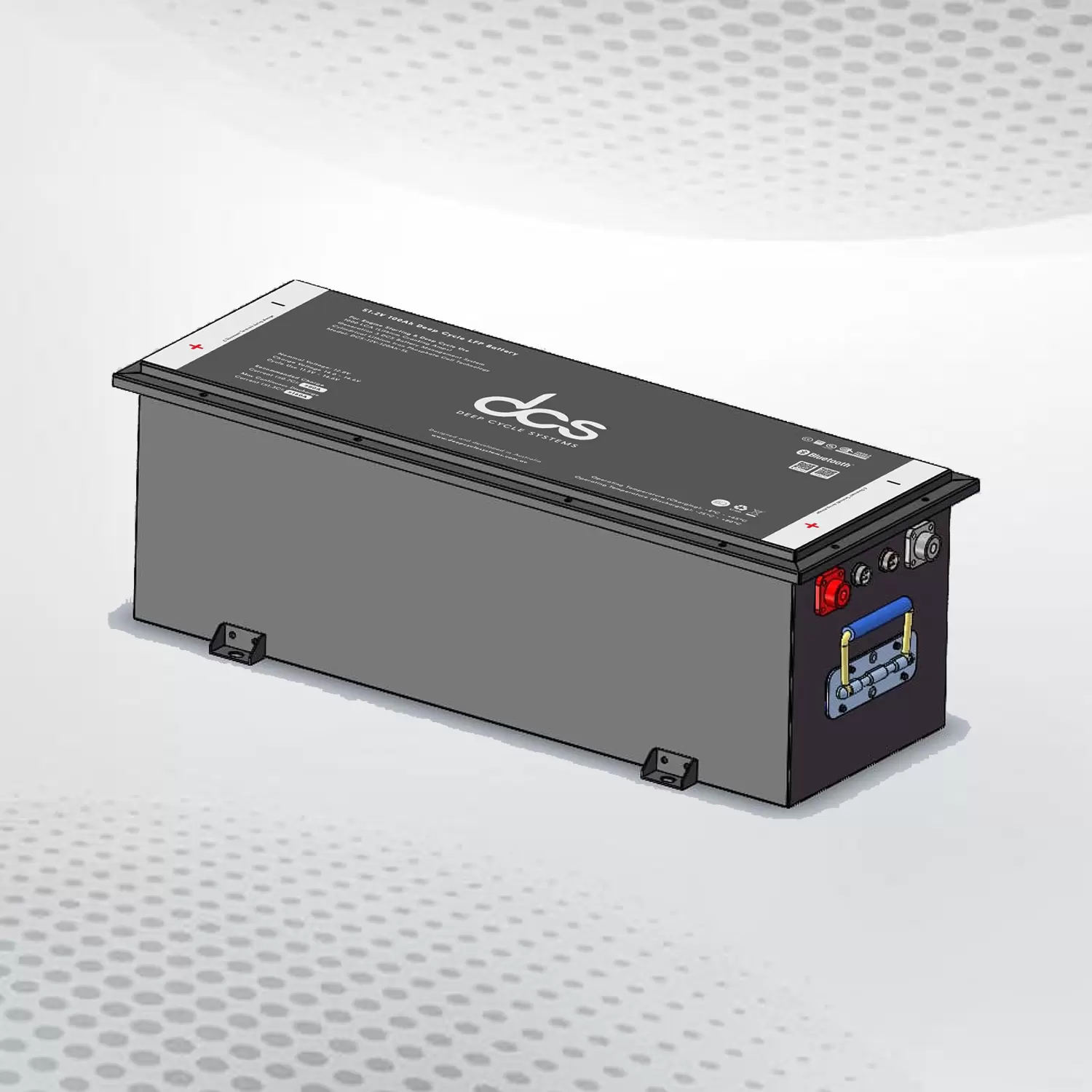In today’s fast-paced world, where technology constantly evolves, finding efficient and reliable power solutions is crucial. One technology that is revolutionizing power systems is the 48V Li Ion battery. With its ability to store and deliver energy effectively, this type of battery transforms how we think about energy efficiency and sustainability. Whether you’re looking to power your home, electric vehicle, or industrial equipment, a 48-V Li-Ion battery could be the game-changer you’ve been searching for.
Understanding 48-V Li-Ion Battery Technology
The 48-V Li-Ion battery is an advanced member of the lithium-ion family, prized for its high energy density and lightweight construction. Operating at a nominal voltage of 48 volts, it offers an optimal balance between power output and efficiency.
The battery functions by facilitating the movement of lithium ions between electrodes during the discharge and charging phases, enabling numerous cycles without notable degradation. This sophisticated mechanism ensures consistent performance, making it suitable for various demanding applications.
Advantages Of 48-V Li-Ion Batteries
48-V Li-Ion batteries offer numerous advantages, making them an increasingly popular choice for various applications, particularly in electric vehicles, renewable energy, and backup power systems.
- High Energy Density: One of the primary benefits of 48-V Li-Ion batteries are their high energy density. They can store a substantial amount of energy in a relatively compact size, which is essential for applications requiring efficient use of space.
- Extended Lifespan: These batteries typically have a longer lifespan than traditional lead-acid batteries, lasting between 8 to 15 years. This longevity reduces the frequency of replacements, resulting in lower long-term costs.
- Fast Charging Capabilities: 48-V Li-Ion batteries can be charged quickly, minimising downtime in applications where rapid power replenishment is crucial, such as electric vehicles and industrial equipment.
- Safety Features: Many 48-V Li-Ion batteries are equipped with advanced Battery Management Systems (BMS) that monitor performance and safety parameters, ensuring optimal operation and reducing risks associated with overcharging and overheating.
- Lightweight Design: These batteries’ lightweight nature enhances efficiency in various applications, contributing to improved overall performance, particularly in electric vehicles, where weight reduction is vital for range and efficiency.
Applications Of 48-V Li-Ion Batteries
48-V Li-Ion batteries are increasingly recognized for their versatility and efficiency, making them suitable for various applications across various industries.
- Electric Vehicles (EVs): One of the most prominent applications of 48-V Li-Ion batteries are in electric vehicles. They provide the necessary power and energy density for efficient propulsion, enhancing performance and range while reducing vehicle weight compared to traditional battery options.
- Renewable Energy Systems: These batteries are ideal for solar energy storage systems, where they can store energy generated during the day for use at night or during periods of low sunlight. This capability enables homeowners and businesses to maximise their use of renewable energy, reducing reliance on the grid.
- Backup Power Supply: In residential and commercial settings, 48-V Li-Ion batteries are reliable backup power sources. They can provide uninterrupted power during outages, ensuring critical systems remain operational.
- Industrial Applications: Many industries utilise 48-V Li-Ion batteries to power electric forklifts, pallet jacks, and other equipment. Their high efficiency and longer lifespan reduce operational costs and increase productivity.
- Telecommunications: These batteries are used in telecommunications systems to ensure a stable power supply for critical infrastructure. Their compact size and high energy density make them ideal for remote and off-grid installations.
Why LFP Battery 48V Is a Game-Changer
The LFP battery 48V represents a significant advancement in energy storage technology, making it a game-changer in various applications. One of its standout features is exceptional safety. LFP batteries are inherently stable and resistant to thermal runaway, reducing the risk of fires and enhancing overall safety for users, especially in demanding environments. Another key advantage is their longevity.
With a lifespan of 8 to 15 years, LFP 48-V batteries outlast traditional lead-acid batteries, which translates to fewer replacements and lower overall costs. This longevity makes them particularly appealing for renewable energy systems, where reliable energy storage is crucial. The high cycle stability of LFP batteries further sets them apart. They can withstand many charge and discharge cycles without substantial capacity loss, making them ideal for applications like electric vehicles and solar energy storage, where frequent daily cycling occurs.
LFP batteries are environmentally friendly and lack the toxic heavy metals in other battery technologies. Their reduced environmental impact aligns with the growing demand for sustainable energy solutions. The versatility of LFP 48-V batteries allows them to serve various sectors, from residential energy storage to industrial applications.
Benefits Of LFP 48-V Batteries
LFP (Lithium Iron Phosphate) 48-V batteries offer several advantages that make them an ideal choice for various applications, particularly in renewable energy, electric vehicles, and industrial settings. Here are some key benefits of LFP 48-V batteries:
Safety
LFP batteries are known for their thermal stability and lower risk of thermal runaway than other lithium-ion batteries. This inherent safety feature reduces the chances of fires or explosions, making them a reliable choice for high-stakes environments.
Long Lifespan
One of the most significant advantages of LFP 48-V batteries is their longevity. Depending on usage and maintenance, these batteries typically last between 8 to 15 years. This durability reduces replacement costs and minimises waste, creating a more sustainable energy solution.
High Cycle Stability
LFP batteries can endure many charge and discharge cycles without significant capacity loss. This characteristic makes them suitable for applications requiring frequent cycling, such as renewable energy storage and electric vehicles.
Environmental Friendliness
LFP batteries are less harmful to the environment compared to traditional lead-acid batteries. They do not contain toxic heavy metals, and their longer lifespan contributes to reduced landfill waste.
Versatile Applications
The versatility of LFP 48-V batteries allows them to be used in various settings, from solar energy storage systems to electric vehicles and industrial applications. Their robust performance in diverse conditions makes them an adaptable energy solution for multiple sectors.
Choosing The Right 48-V Lithium Battery
Choosing the correct 48-volt lithium battery is essential for optimising performance and ensuring longevity in various applications, such as electric vehicles, solar energy systems, and backup power solutions. Here are several key factors to consider when making your selection. Assess the energy requirements of your specific application. Calculate the total wattage needed to determine the appropriate battery capacity. A higher amp-hour (Ah) rating indicates more energy storage, allowing extended usage between charges.
Consider the battery’s cycle life, which indicates how many charge and discharge cycles it can undergo before its capacity significantly diminishes. Look for batteries with a longer cycle life to ensure durability and lower replacement costs. Safety features are also crucial. Opt for batteries with advanced battery management systems (BMS) that monitor temperature, voltage, and current, protecting overcharging and short circuits.
Examine the manufacturer’s warranty, as a comprehensive warranty reflects the company’s confidence in its product. Ensure compatibility with your existing systems, including charging equipment and energy management solutions. Considering these factors, you can confidently choose the correct 48-volt lithium battery to meet your needs effectively.
Cost Efficiency Of 48-V Battery Systems
The cost efficiency of 48-V battery systems is increasingly recognized across various industries, particularly in renewable energy, electric vehicles, and backup power solutions. Although the initial investment in a 48-V battery system may be higher than traditional lead-acid alternatives, the long-term savings often outweigh these upfront costs.
One significant factor contributing to cost efficiency is the extended lifespan of 48-V batteries, which can last 8 to 15 years with proper maintenance. This longevity reduces the frequency of replacements, leading to lower overall ownership costs. Additionally, the high energy density of these batteries allows for more efficient energy storage and utilisation, resulting in reduced energy expenses, especially for applications that rely on renewable sources like solar power.
Moreover, the lightweight design of a 48-V battery system enhances energy efficiency, reducing operational costs in electric vehicles by improving performance and range. Fast charging capabilities minimise downtime, ensuring equipment and cars can be operational quickly, which is vital for businesses.
Maintenance And Safety Tips for A 48V Lithium Battery
Proper maintenance and adherence to safety guidelines are crucial for maximising the lifespan and performance of your 48V lithium battery. Regularly inspect the battery for signs of wear or damage, such as swelling or corrosion, and ensure all connections are secure. Avoid exposing the battery to extreme temperatures, as excessive heat and cold can degrade its performance and lifespan.
For optimal charging, use a charger specifically designed for 48-V lithium batteries and follow the manufacturer’s recommendations to avoid overcharging. Implementing a charge controller can help regulate the charging process and prevent overcharging. Additionally, periodic balancing of the battery cells ensures uniform voltage levels across all cells, promoting longevity and consistent performance.
When handling or installing the battery, wear appropriate protective gear, including gloves and safety glasses, to minimise the risk of injury. Keep the battery away from flammable materials and store it in a cool, dry place when not in use. If the battery is part of a more extensive system, ensure it is correctly integrated to avoid electrical faults. In case of any signs of malfunction or damage, consult the manufacturer or a qualified technician for inspection and repairs.
Conclusion
In conclusion, a 48-volt lithium-ion battery represents a transformative solution for enhancing energy efficiency across multiple applications. Its high energy density and lower internal resistance contribute to significant power savings and extended battery life. As industries and consumers increasingly prioritise sustainability, this technology offers a reliable alternative to traditional power systems. Embracing 48-volt lithium-ion batteries optimise performance and supports the transition toward more efficient and eco-friendly energy solutions in various sectors.
FAQs
What are the key benefits of using a 48-V Li-Ion battery?
The benefits of using a 48-V Li-Ion battery include high energy density, lightweight design, long cycle life, and faster charging capabilities. These features make it an ideal choice for applications where performance and efficiency are critical.
How long can a 48-V Li-Ion battery last?
Depending on usage and maintenance, a 48-V Li-Ion battery can last between 8 to 15 years. Its longevity is a significant advantage over traditional lead-acid batteries, which typically have a shorter lifespan.
Is a 48V Li Ion battery safe to use?
Yes, a 48V Li Ion battery is considered safe. It often comes equipped with a Battery Management System (BMS) that monitors key parameters, preventing issues such as overcharging and overheating, thereby enhancing safety.
How is a 48-V Li-Ion battery maintained?
Maintaining a 48-V Li-Ion battery involves regularly monitoring charge levels and ensuring it is not fully discharged. Following the manufacturer’s maintenance guidelines can maximise its lifespan and performance.
Can a 48-V Li-Ion battery be used in renewable energy systems?
A 48-V Li-Ion battery is commonly used in renewable energy systems, such as solar installations. Its ability to store energy efficiently makes it an excellent choice for applications where energy management is essential.




